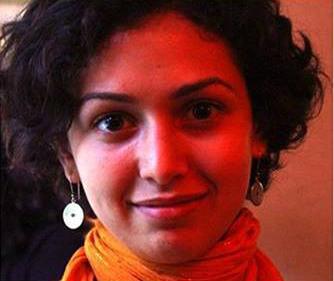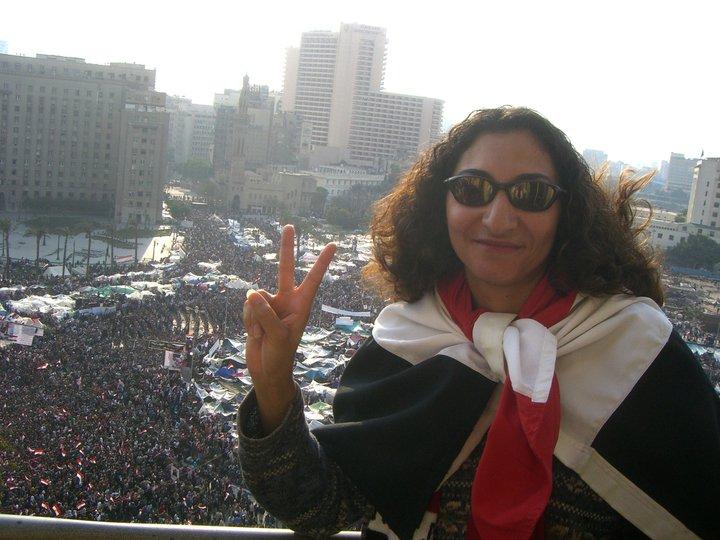Rasha Abdulla overlooking Tahrir Square just hours before Hosni Mubarak stepped down from power.
Many of the young Egyptians who crammed into Tahrir Square in 2011 had put their faith in social media. They'd posted their protests weeks in advance on Facebook, and people responded by saying: ''I'm attending the revolution.''
These days, however, just posting an invitation to a demonstration on Facebook could land someone in jail, says Rasha Abdulla, a professor at The American University in Cairo.
In 2011, Abdulla says, she thought of the toppling of Egyptian President Hosni Mubark as "the realization of this big dream…The victory of all these young people who Mubarak at some point called 'the internet kids.' And he said, 'Let them play,'" she says. "They've played all right. They've toppled the regime."
In 2013, Facebook and Twitter didn't save the day when Egypt's military toppled elected President Mohammed Morsi.
Abdulla says now there's little talk of harnessing social media to organize new demonstrations. The regime passed a law giving Egyptian authorities broad powers to disperse crowds. The lesson, she says: Egyptians underestimated the resilience of the regime.
"We're new at this. We thought that 18 days could change the world," she says. "What happened is that we toppled the head of the regime, but the essence of the regime remained in power."

Abdulla calls Sallam "a great spirit," and says the young activist manages to smuggle messages out of prison that appear on social media feeds.
"It's amazing how these young people in prison are writing statements to keep us hopeful, to keep us fighting, and to keep us maintaining our momentum," she says.
Asked how activists might have used social media differently in 2011, Abdullah says that's a "riddle."
"A lot of these activists are pure revolutionaries. They do not want to do politics, because politics is a dirty business," she says. "You're going to have to make concessions and these people are so pure in their fight for what they want that they are not able to make concessions."
That inability to compromise, Abdulla says, is what halted the revolution in its tracks.
"Maybe time and the younger generations that are now coming up, maybe the younger political parties that are now on the scene need to be more serious, to train their young cadres to be able to do that one day, because we couldn't do that," she says.
